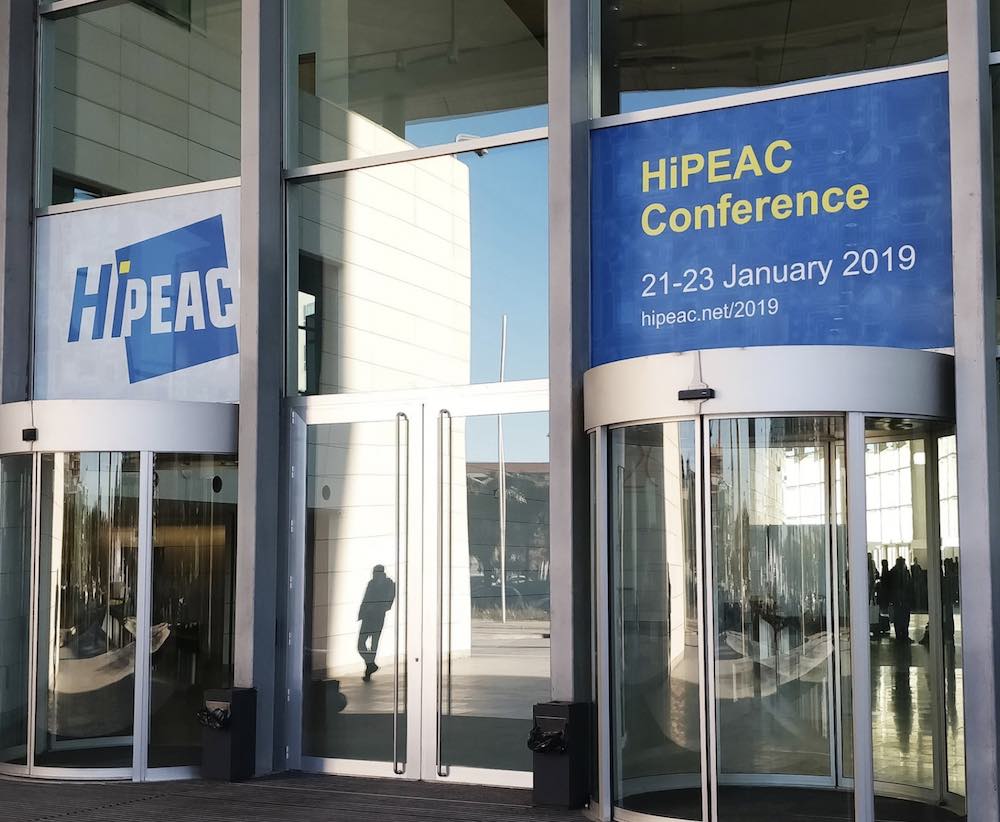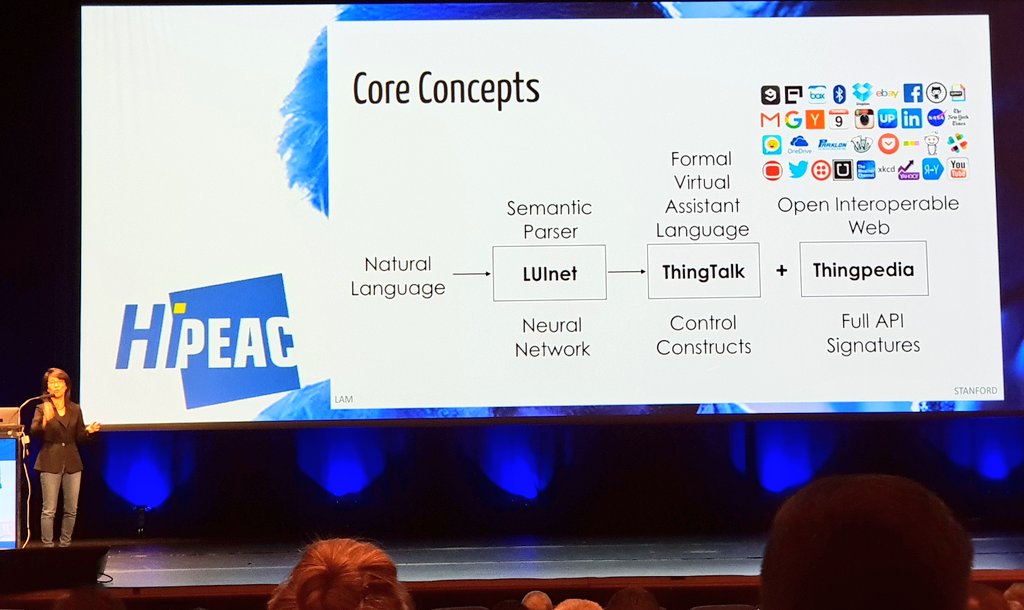 In this video, researchers lay out the foundations of HiPEAC Vision 2019. Now in its seventh year, the HiPEAC event in Valencia this week is investigating radically different technologies to maintain the fastest possible rate of innovation.
In this video, researchers lay out the foundations of HiPEAC Vision 2019. Now in its seventh year, the HiPEAC event in Valencia this week is investigating radically different technologies to maintain the fastest possible rate of innovation.
Computing is at a crossroads. On the one hand, as we all know, digital technology has made dizzying progress over the last 50 years. Today, the possibilities of an interconnected, heterogeneous and intelligent world are only just beginning to make themselves known. This stunning advancement in digital technology was made possible by ever-increasing performance at ever lower costs. However, physical limits mean we won’t be able to keep shrinking computing components while increasing performance for much longer. So where do we go from here? What are the main challenges and conditions for future developments, and where? The HiPEAC Vision 2019 explores all these questions, and more.
This is the 7th edition of the HiPEAC Vision. The first one was issued in 2008. Over this decade, the performance of computing devices has increased dramatically, despite the increasing limitations of silicon technology. Computing technology has also had a profound impact on our way of life: 10 years ago, smartphones were virtually non-existent; today, they are such an important part of our existence that people feel uncomfortable without them and, in some cases, even find they have become addicted to them. Social networks have – for better or worse – changed the way we interact and share our lives with one another, with privacy seeming less and less important.
Vison Summary
The big vertical companies (Google, Apple, Facebook, Amazon, Microsoft = GAFAM – and Baidu, Alibaba, Tencent, Xiaomi = BATX) are now the most profitable in the world, having overtaken energy companies. They are now even developing their own integrated circuits and cover the complete value chain from hardware to services. Thanks to ICT, new business models have sprung up in different domains: transportation (Uber), hotels (Airbnb), goods (Amazon, Alibaba), media (Netflix, Spotify, Deezer) etc.
The PC is now a commodity and its market is eroding due to the omnipresence of the more and more powerful smartphones and tablets. Complexity and cost are higher and higher for making high-end chips; large markets, like smartphones, are driving the industry for now, but this market is starting to saturate and new markets are sought for further growth. Programming has changed from writing a complete application in C to gluing together libraries of various functionalities with interpreted languages such as Python.
Last but not least, recent progress in artificial intelligence, especially deep learning, is allowing the computer to move out of cyberspace and interact with the real world. Deep learning allows computers to see, hear and understand, enabling them to morph from their original form of grey boxes with keyboards and screens to new forms like cars, assistants in loudspeakers, and other devices integrated in the fabric of our life.
If the expectations about AI become a reality, it will have a drastic impact on our civilization, including HiPEAC domains, because “intelligent” computers could help us make better hardware, software, operating systems and applications. However, new challenges are also opening up, such as how to convince people that they can trust these new machines, or how to guarantee that they will do what they are supposed to do, respecting safety, security and energy constraints? ICT systems are now heterogeneous, distributed and so complex that it is difficult for the human brain to comprehend them.
Each time the editorial board start a new HiPEAC Vision, we think it will be a “small” increment over the previous one. But we always discover that our field is evolving so fast and new facets of ICT are emerging so rapidly that we end up dealing with more and more topics. This release is no exception and we hope it will give you as much pleasure to read it as we had producing it.





